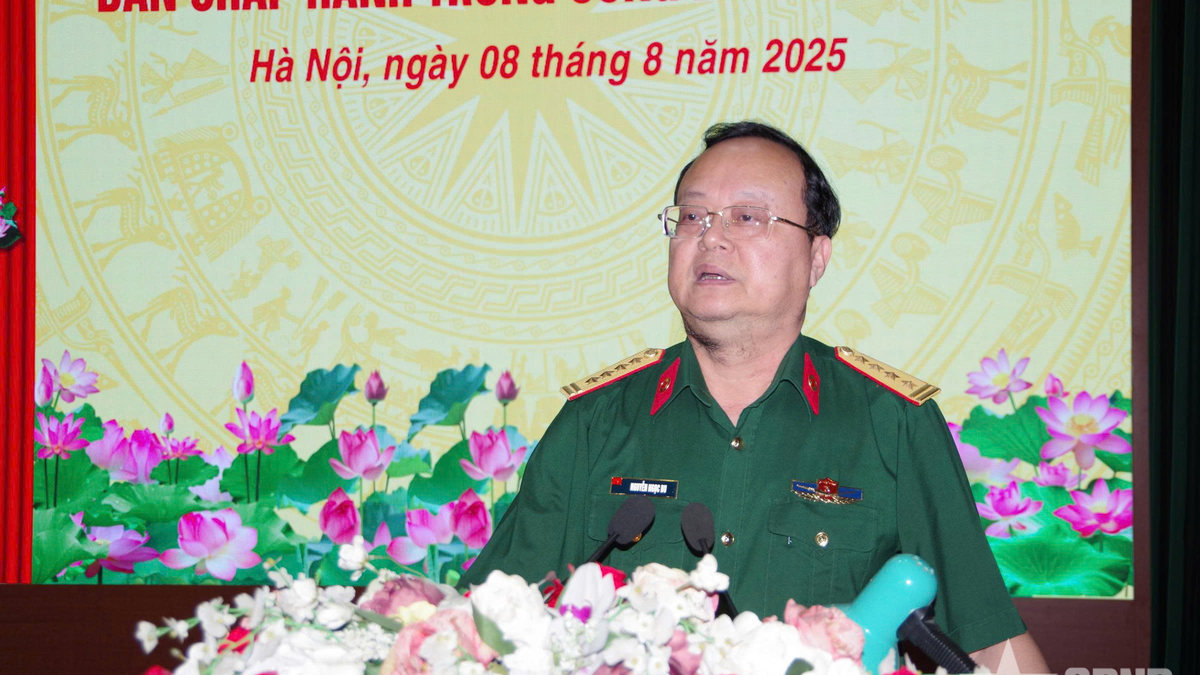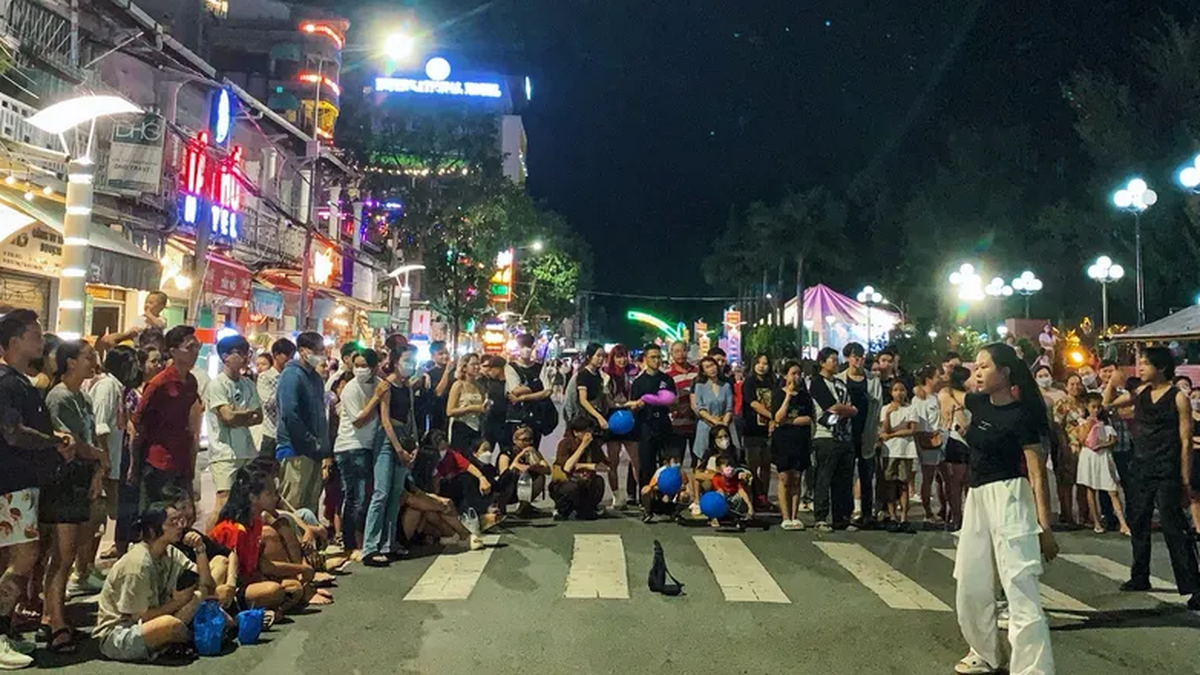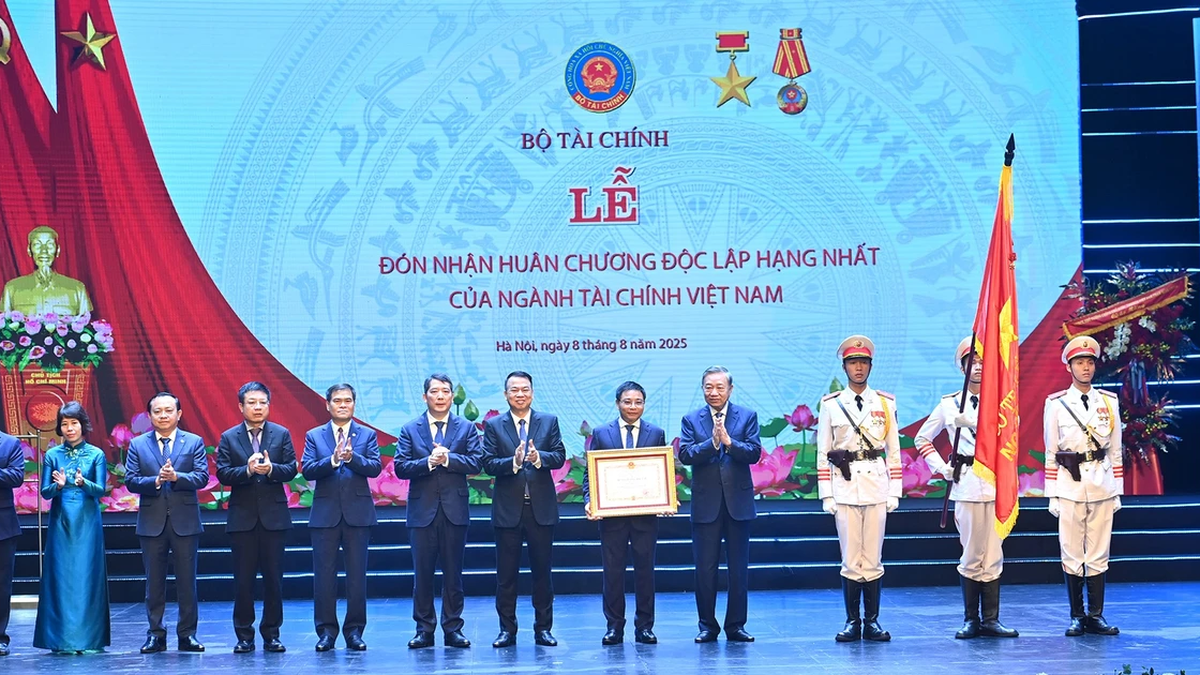In the Gen Z dictionary, “microwave” is used to talk about couples who have broken up but then reunited and that situation keeps happening over and over again. Love affairs with no way out…

Lasting love always comes from both sides - Photo: QUANG DINH
Young people with "microwave" love, why? Is the young generation spoiled as children because their families have few children, so their ability to face and solve problems is low, making it difficult to overcome pressure and challenges?
Love affairs with no way out
Having just received a message from her ex-lover asking to get back together, Khanh An (21 years old, from Phan Rang, Ninh Thuan ) immediately agreed without thinking. She changed the color of the chat window on Messenger to pink with the image of two cute hearts.
It had become a habit, so neither of them needed to explain their previous problems nor discuss the reason why they came back this time.
It has been two years since Khanh An and her boyfriend started dating. That was also the time when she often lived with erratic emotions, such as jealousy and anger when her lover cared about and talked intimately with other girls.
Sometimes it's simply because your boyfriend doesn't pick up the phone or takes a while to reply to your messages.
Every time they disagreed or argued, Khanh An would definitely break up. But there were times when her boyfriend took the initiative. It would take a few days or a few weeks for one of them to make up.
Sometimes it's a romantic date with candles and flowers and a heartfelt apology. But sometimes it's just a text message with just a few joking words "Hey, let's get back together!".
While in a sad mood, Minh Tri (25 years old, living in Tan Phu district, Ho Chi Minh City) suddenly received a phone call from his girlfriend with an offer to reunite.
He said: "Honestly, I'm just a little happy but a little worried because I don't know how many times we've broken up and gotten back together."
According to Tri, at first he was always the one to persuade and hold on. But over time he often gave up every time his lover asked to break up because he felt disrespected when everything kept repeating itself.
Admitting that he is an emotional person, even though he feels tired of the relationship of more than three years, Tri still cannot decisively break up because he does not want to be known as cruel.
Microwave love
In the Gen Z dictionary, "microwave" is used to refer to couples who have broken up but then reunited and that situation happens many times.
Just like a microwave oven turns on, off, and then heats up food, this relationship will constantly go through a cycle of breaking up and getting back together.
In some Western countries, this relationship is called On-off relationship. Unlike traditional love, in this relationship, breaking up is not the end but the beginning of a circle of reunion and separation that does not know when to stop.
According to a study published in the American journal Medicalnewstoday in 2023, 60% of young people admitted to having experienced a "microwave" relationship.
What is the cause?
Most young people are not yet mature in terms of psychology and social skills, often making hasty decisions or emotional outbursts. It can be a conflict arising from trivial matters. In anger, no one gives in, the words of farewell, acceptance of separation are said easily, without much hesitation.
However, after being apart for a while, some people realize they still have feelings for their ex, feel lonely while their friends are all in relationships, and want to get back together.
It could also be due to the immaturity of young people when making decisions; their ability to face and solve problems is low; due to the lack of ability to listen and understand each other and the big ego of couples; due to the influence of other couples leading to comparison and hasty decision making or listening to the opinions of outsiders, leading to mistakes.
Sometimes they break up to find new feelings. When they realize that the new relationship is not as expected, they go back to their ex, while the other person still accepts it because of the feeling of familiarity.
This is similar to a conditioned reflex, which helps protect yourself from hurt from the past as well as the future.
Reheating multiple times, is it ok?
In general, "microwave" love exists a lot in young people because there is no marriage bond so it is easy to break up and easy to forgive.
In fact, breaking up can help both parties realize the importance of the relationship, understand the shortcomings that need to be improved, avoid conflicts or repeat the same mistakes as before. However, there are also people who reunite many times but still cannot ensure long-term because the effort invested in love does not always come from both sides.
When getting back together "because of love", "because you can't forget that person", if both of you completely ignore the arguments from the past, believe that it's not worth mentioning after making up, like... the past should just stay in the past, then the original conflict that led to the breakup is still there.
Over time, it leads to emotional exhaustion and callousness, disappointment because the other person doesn't change, there is no long-term commitment.
Several recent studies have shown that people who maintain these relationships often have poor communication skills, are not used to dealing with challenges and conflicts, and have little long-term commitment.
Some people think that "microwave" love does not help to mend feelings and sometimes makes things worse. If you keep "going back and forth" many times, your feelings will become numb, no longer sincere or passionate like the first time.
A happy ending is still possible
"Microwave" love can still have a happy ending, if after each breakup we learn the shortcomings that need to be improved to become better and "fit" better in love with the person we love. From there, we can have a way to correct ourselves and that person to avoid previous mistakes.
Breaking up and getting back together is sometimes about understanding each other better, and getting closer when you know that you still want to continue to be together and are willing to change for that person. The most important thing to keep in mind is that the effort to improve must come from both sides.
Source: https://tuoitre.vn/nguoi-tre-yeu-kieu-lo-vi-song-20241206223856134.htm



































































































Comment (0)